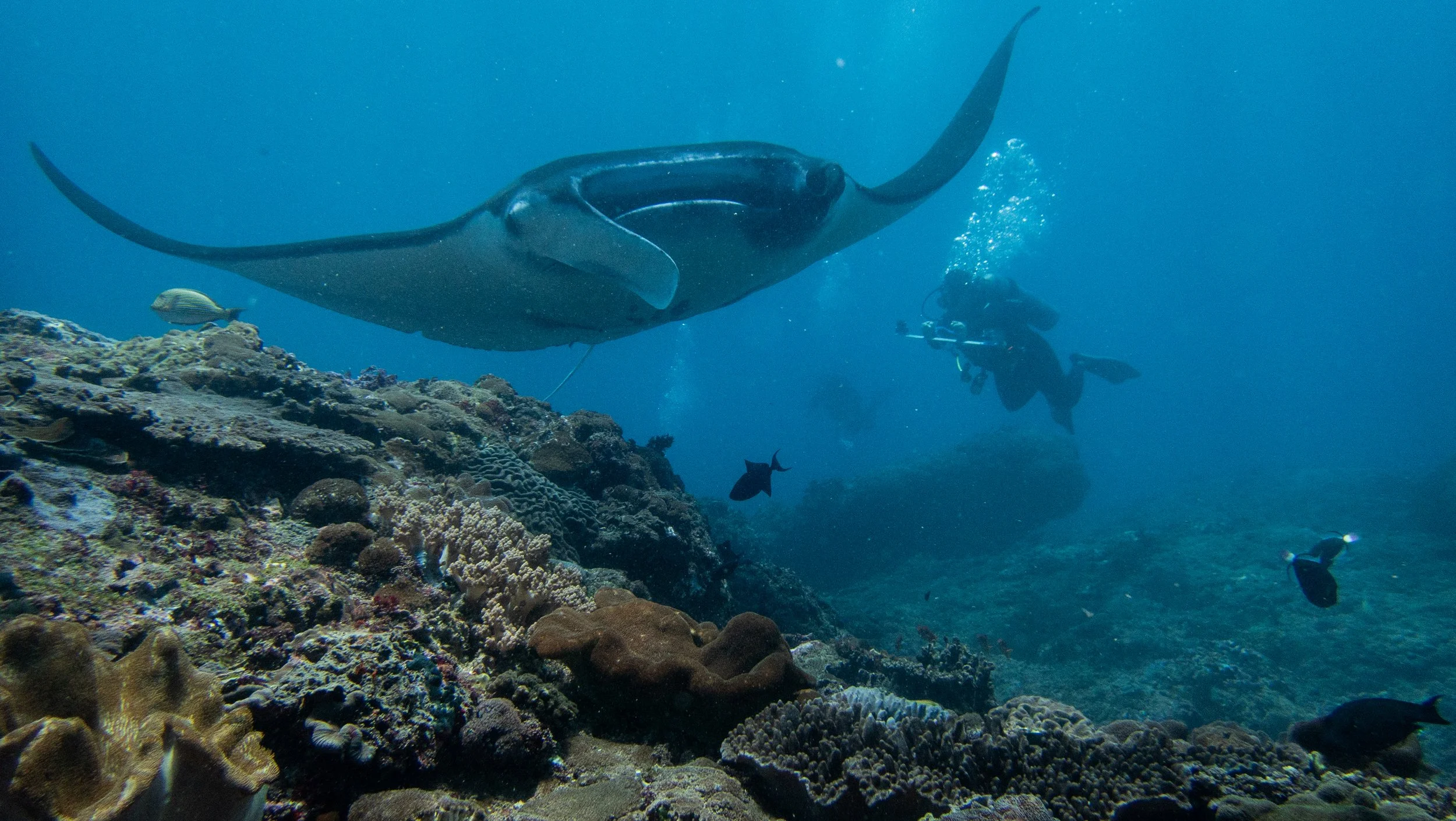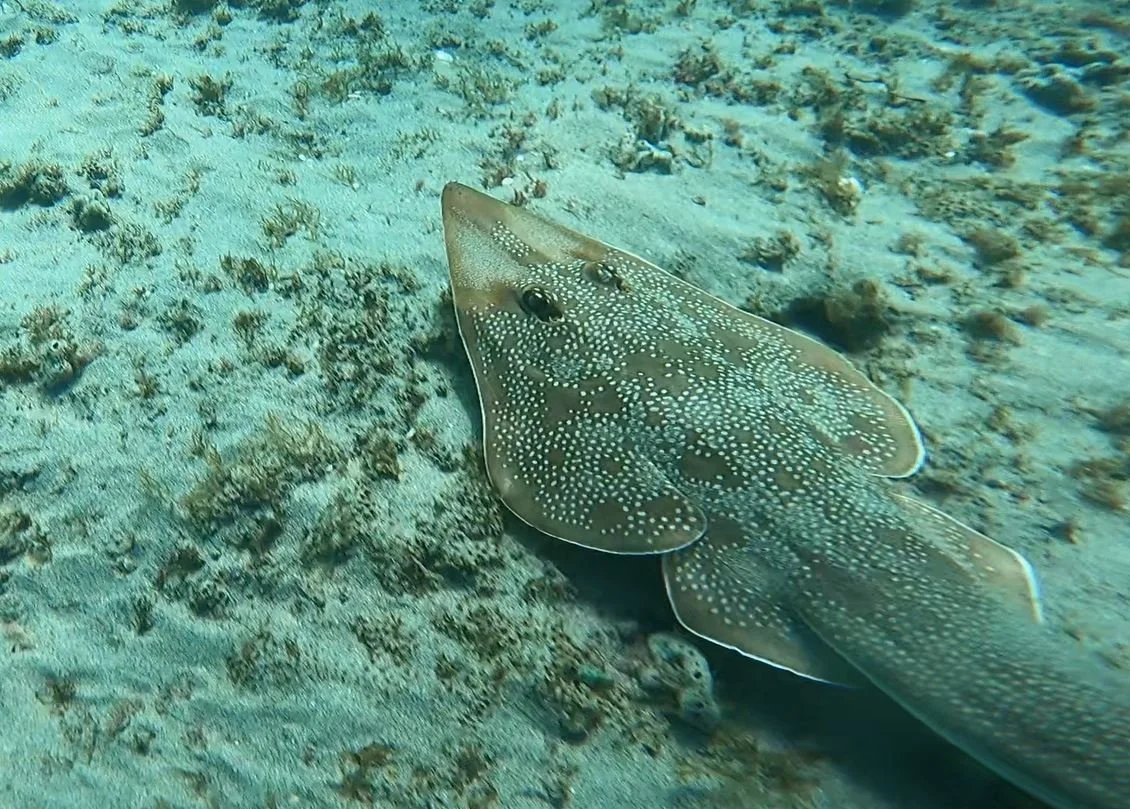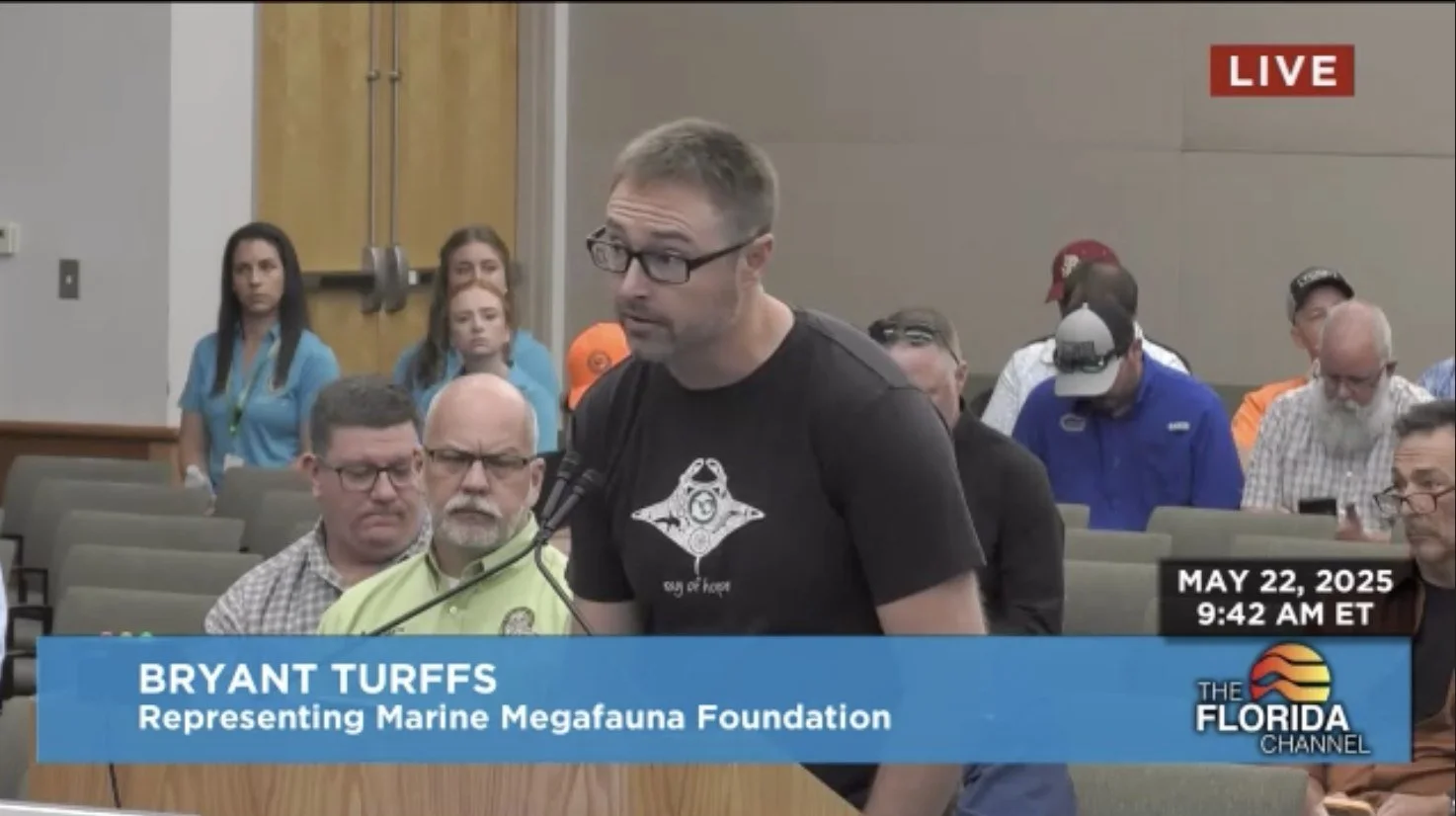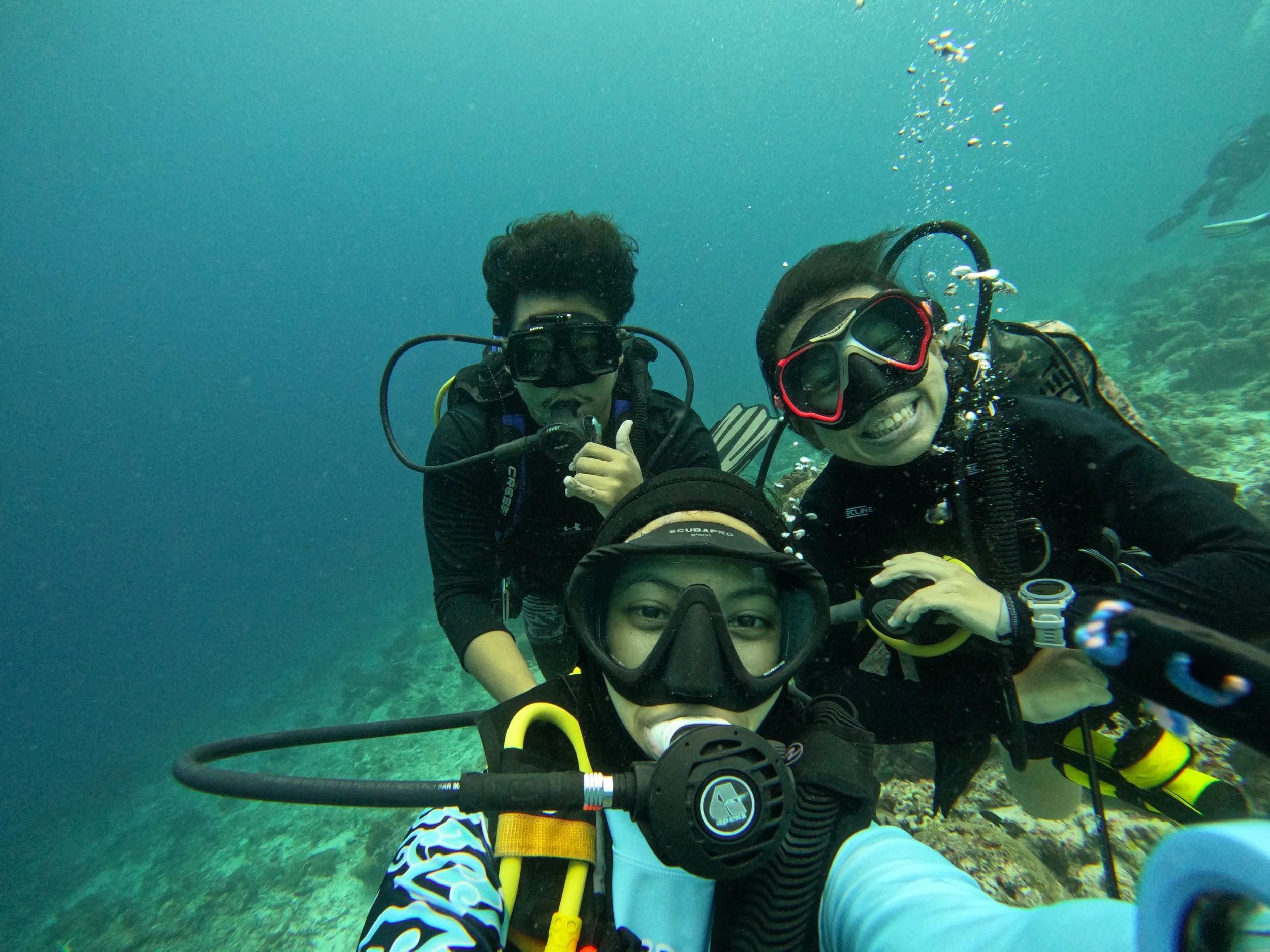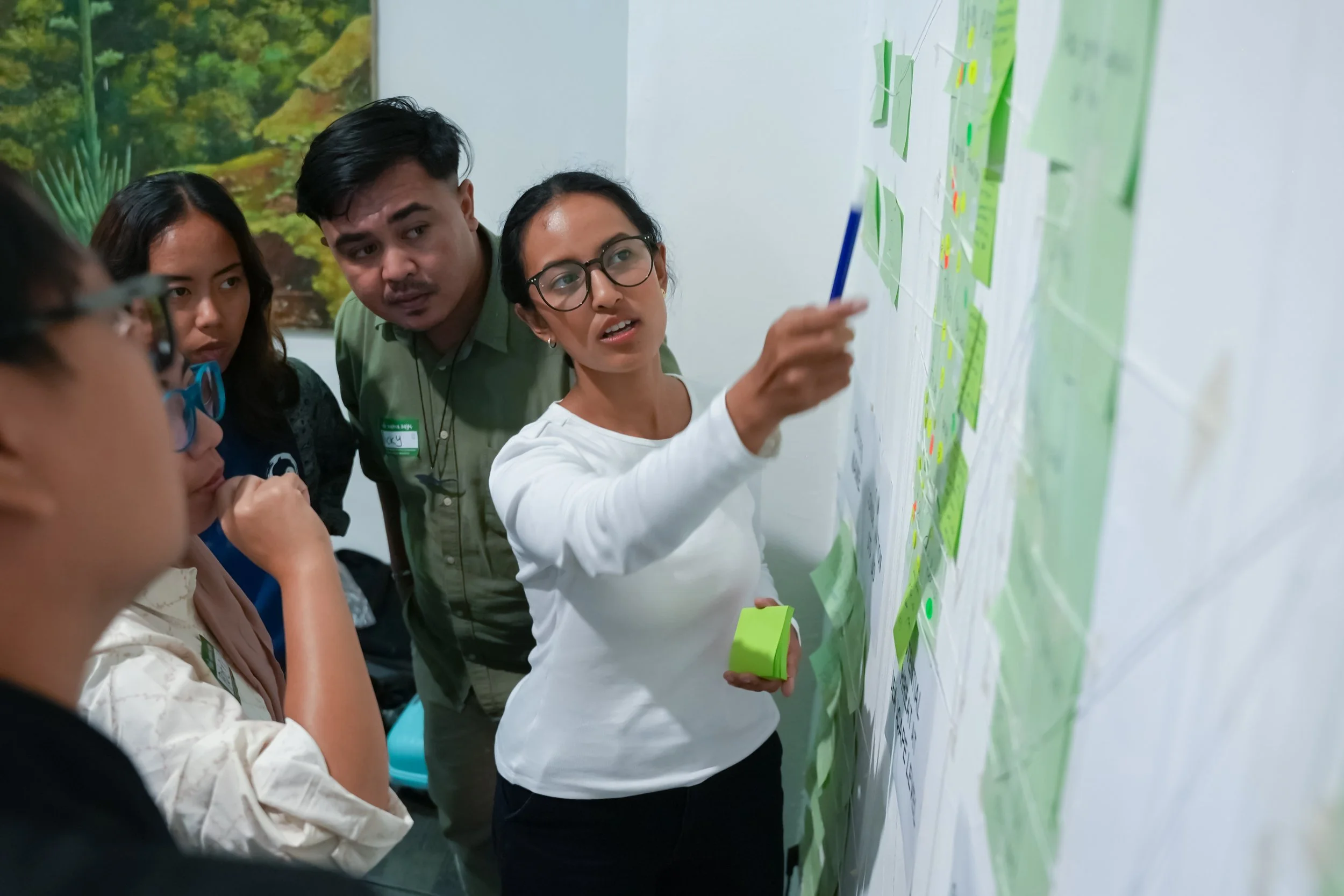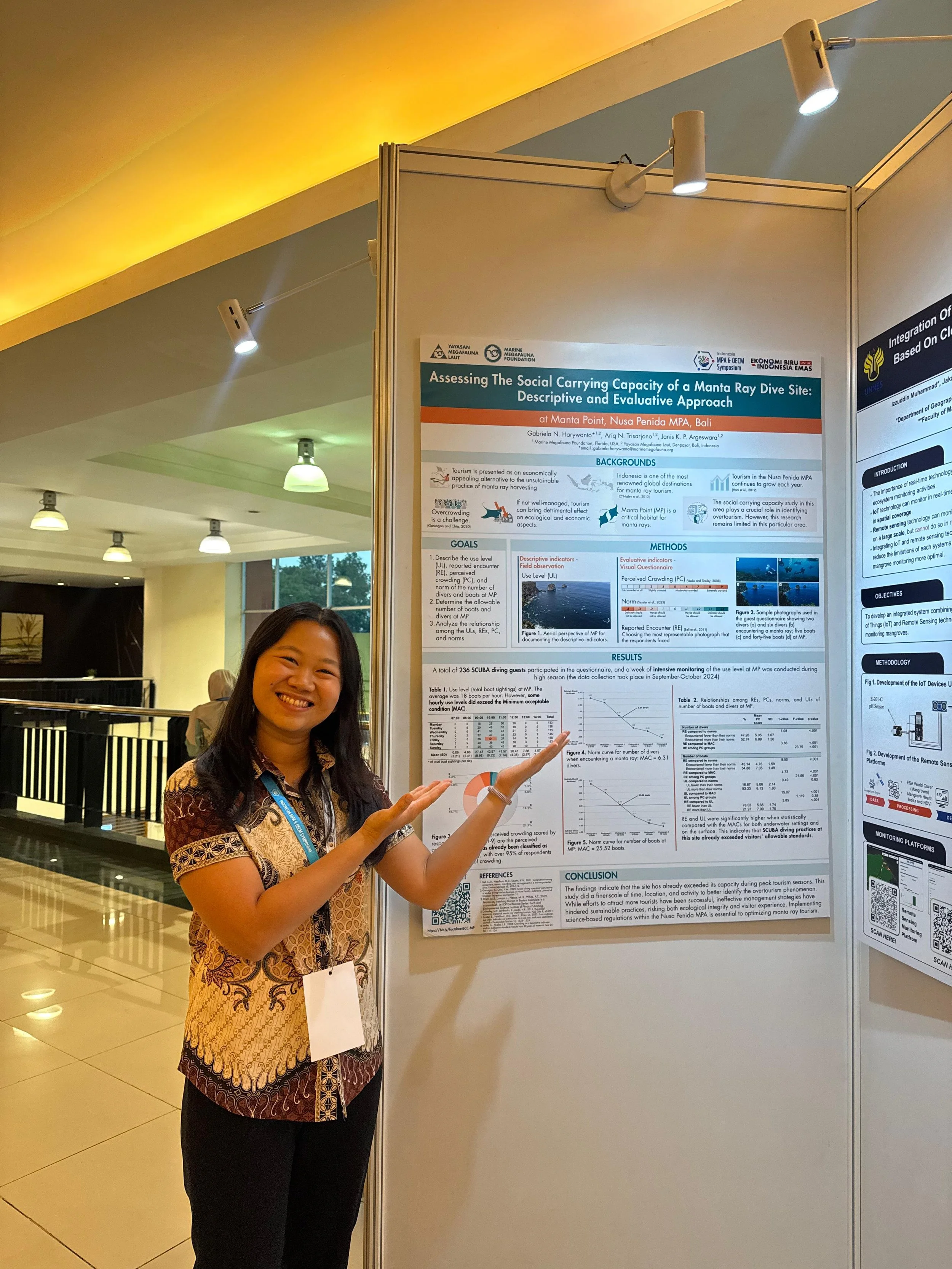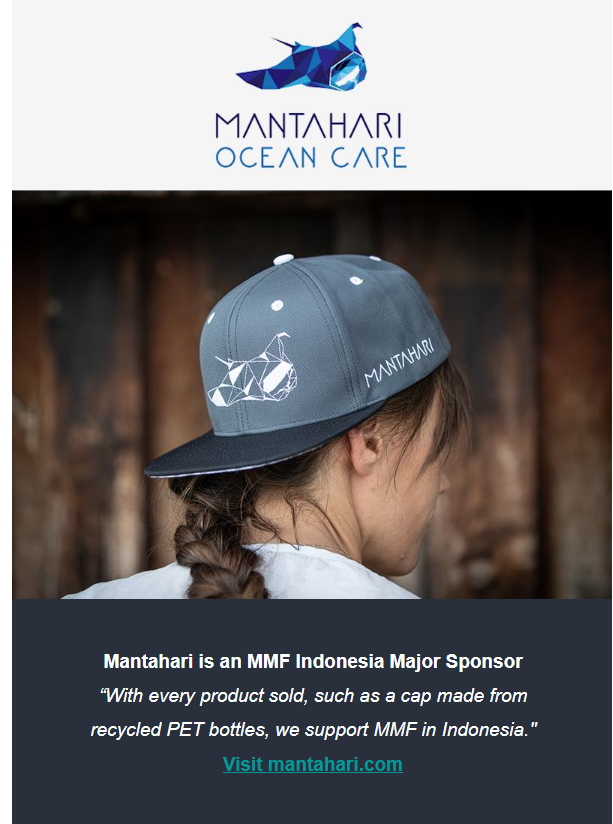Monthly Update for June
As always, there's a million things going on!
A highlight for me this month has been kicking off our brand new whale shark research and conservation project in Oman, supported by the Atlantis Atlas Project and Georgia Aquarium – hopefully the first of many field visits to this wonderful country (where, thanks to community science contributors, we've already identified over 200 whale sharks).
Elsewhere in the world, Janis and her team in Indonesia are killing it, as usual, the Florida team have successfully deployed several satellite tags on the enigmatic Atlantic manta ray population, and Team Mozambique have just graduated another 82(!) young marine conservationists – while also getting lots of fieldwork done.
If you're interested in joining us in the field – or for a dive holiday! – then keep an eye on our Trips page. We still have some spaces left on our epic Banda Sea voyage in Indonesia (2027). I'll also be hosting a Galapagos liveaboard in July 2026. If you've always dreamed of seeing the schooling hammerheads, we'll be optimizing for that… but it's the bus-sized adult female whale sharks that'll really blow you away :P
Thanks to you all for the support – check out our latest updates below!
Very best,
Simon
Updates from Florida
New Research Assistant joins the team!
Welcome to our new research assistant, Isabel Margo Moyer. Isabel brings a background in Marine Science and Animal Behavior and, as a Florida local, is very excited to study the state's manta ray population!
Successful satellite tagging deployment
The team successfully deployed 4 satellite tags on manta rays in Central Florida, which will help us understand where these mantas are headed when they leave the region (if they do!)
All the guitarfishies!
Guitarfish snorkel surveys achieved remarkable success this month, with a record 19 guitarfish observed in a single one-hour survey.
Florida Fish & Wildlife Commission Engagement
Representatives from the Florida Manta Project, including Bryant Turffs (pictured above) attended the Florida Fish & Wildlife Conservation Commission meeting, speaking publicly to highlight anthropogenic impacts on manta rays to state government officials. This advocacy has resulted in a scheduled meeting with FWC staff to discuss increasing awareness of these issues among boaters and anglers.
Intern research presentation
Congratulations to our intern Annabella Madrid from the University of Miami, who presented her research on methods for measuring manta rays! Her work contributes valuable insights to our ongoing photogrammetry research efforts.
Updates from Indonesia
Derawan Islands monitoring program restarts
Rahvania and Barra have arrived in the Derawan Islands to restart our long-term monitoring program! Thanks to support from Mantahari Oceancare and EcoPro Divers, the team will be diving with Scuba Junkie Sangalaki to collect in-water manta ray and sea turtle data, as well as conduct local community outreach programs. This marks an exciting return to this important research site.
Regional collaboration for migratory species conservation
Janis joined the Lesser Sunda Seascape Migratory Species workshop in Dili, Timor Leste. The symposium, organized by Konservasi Indonesia, Conservation International Timor Leste, and CTI-CFF, brought together diverse researchers to identify research gaps and prioritize studies within the seascape. The workshop results will inform the Regional Action Plan for seascape management.
Indonesia MPA Symposium involvement
Nathania presented a poster at the first Indonesia MPA and OECM Symposium, highlighting our social carrying capacity study at Manta Point and emphasizing the need for rigid and enforced tourism regulation in the MPA area. The symposium provided insights into lessons learned, challenges, and opportunities in developing MPA-OECM areas in Indonesia, supporting the "30x45" target of protecting 30% of Indonesia's waters by 2045.
World Turtle Day Outreach
During World Turtle Day, Ariq shared his knowledge and led a discussion about turtle biology and conservation at Scuba Center Asia. The audience engaged with questions and shared their own diving experiences with turtles, while discussing threats and collaborative protection strategies for turtles and their habitats throughout Indonesia.
Farewell and good luck to Research Assistant Nathania!
Research Assistant Nathania will soon be leaving Indonesia to continue her Master's degree at the University of Queensland, majoring in Conservation Science. While we're sad she won't be in the field anymore, we're excited and proud of her academic journey ahead. Good luck Nathania!
Updates from Mozambique
Rare small eye stingray courtship behavior documented
MMF researcher Simão Sande captured remarkable footage of courtship behavior between a pair of smalleye stingrays (Megatrygon microps) at the surface in Tofo. The male was observed chasing the female and attempting to bite her pectoral fin, behavior typically associated with mating in elasmobranchs. This sighting is particularly significant as smalleye stingrays are extremely rare to observe, making documentation of their reproductive behavior even more extraordinary.
82 New Ocean Guardians
May was graduation season for the Nemos Pequenos swimming program, with 82 bright young minds from Josina Machel and Conguiana schools in Tofo Beach celebrating their successful completion of the program. Of the graduates, 48 were girls, highlighting the program's success in reaching young women. Students and their parents all gathered at Mozambeat Motel (our esteemed education partner) to witness their children receive certificates and step into their inspiring new roles as Ocean Guardians.
Updates from Around the World
Whale shark research launches in Oman
We've launched the first field research project on whale sharks in Oman, building on 15 years of citizen science data collected by Dr David Robinson's Sharkwatch Arabia sighting network. Over three weeks of fieldwork, we identified 30 new whale sharks, most while they were feeding on high densities of fish eggs, and tagged 9 sharks with research partners Georgia Aquarium.
NEW SCIENCE: MegaMove study maps critical ocean protection areas
Nearly 400 scientists from 50+ countries collaborated to track over 100 marine megafauna species, mapping the most critical ocean areas needing protection. The MegaMove project, led by ANU's Prof Ana Sequeira and co-authored by MMF's Dr. Simon Pierce and Dr. Chris Rohner, reveals that current marine protection (only 8% of oceans) falls critically short. The study demonstrates that these ocean giants' habitats overlap dangerously with human threats, highlighting the need for protected areas combined with smart mitigation strategies including better fishing gear, modified ship lighting, and new shipping routes.
Your support is crucial in fuelling these vital efforts. By joining us, you become a champion for our ocean planet.
Join MMF as a monthly supporter
Your membership directly contributes to:
Cutting-edge research on endangered marine wildlife
Empowering local communities through sustainable livelihoods
Educating the next generation about ocean conservation
Together, we can create a healthier, more vibrant ocean for all.
Thanks again for your support!
Madeleine Pierce
Communications Director, Marine Megafauna Foundation
